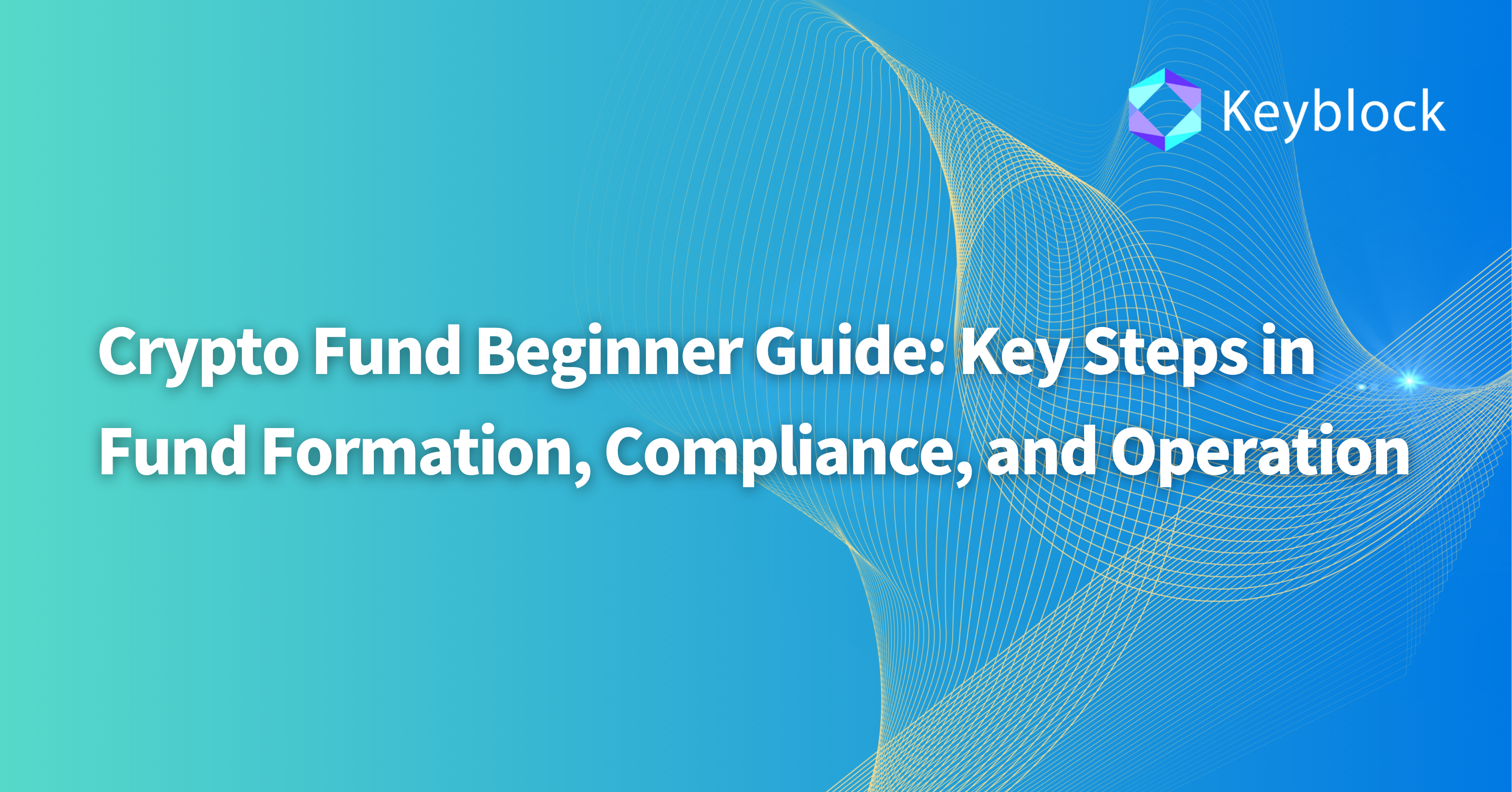From Zero to One: How to Efficiently Launch and Run a Crypto Fund
Thinking about entering the Web3 investment space and launching your own crypto fund? The journey can be daunting—especially for newcomers—due to complex compliance requirements, technical hurdles, and operational demands. Keyblock Solutions breaks down the full lifecycle of a crypto fund, offering essential services to help you take that first confident step.
For those new to fund management, launching and operating a crypto fund (also known as a virtual asset fund) presents unique challenges. It blends the rigor of traditional finance with the technical and regulatory intricacies of digital assets. Fortunately, Keyblock Solutions offers a one-stop solution covering every critical stage of the fund lifecycle:
1. Fund Setup: Laying a Solid Foundation
- Fund Structure
This is the backbone of your fund. Key considerations include jurisdiction (e.g., Cayman Islands, BVI, Singapore, Hong Kong, U.S.), legal form (such as Limited Partnership), investor rights, and fee structures. While the standard “2/20” model (2% annual management fee + 20% performance fee) is common, more flexible structures exist based on asset class, portfolio segmentation, and tiered fee models.
*Takeaway: The “2/20” model is a benchmark in private fund management, but terms should be tailored to your strategy and fund size.
- Document Preparation & Process Coordination
Drafting core legal documents like the Limited Partnership Agreement (LPA) and Private Placement Memorandum (PPM), while coordinating with lawyers, auditors, custodians, and other stakeholders. With optimized workflows, initial setup can be completed in as fast as 4 weeks.
- Vendor Onboarding
Support in connecting with fund managers (if needed), compliant banking partners, custodians, and other service providers.
2. Robust Technical Infrastructure: Securing Transactions & Data
- Trading Architecture Support
Designing secure and efficient trading system frameworks.
- Exchange API Integration
Seamless connectivity between fund management systems and crypto exchanges to ensure smooth execution and real-time data sync.
*Takeaway: APIs (Application Programming Interfaces) act as bridges that allow different software systems to “talk” to each other.
- Payment Gateway Configuration
Setting up secure channels for fiat and crypto inflows/outflows.
- Data Backup & Security
Implementing multi-location, multi-layered backups to safeguard critical trading data.
3. Fund Operations: Keeping Daily Activities Running Smoothly
- Investor Relations & Subscriptions
Managing investor onboarding and capital inflows.
- Pricing Source Management
Helping identify and manage reliable market data sources for crypto asset valuation.
- Financial & Portfolio Management
Providing financial reporting support and handling complex crypto asset classifications, portfolio composition, token codes, and standardized transaction data formats.
- Data Interfaces & Testing
Offering data interface support and conducting system tests to ensure operational stability.
4. Compliance & Anti-Money Laundering (AML): The Cornerstone of Trust
- FATCA/CRS Compliance
Assisting with cross-border tax reporting, including U.S. FATCA and global CRS requirements.
*Takeaway: These procedures are essential to avoid international tax penalties.
- Rigorous KYC/AML/KYT Protocols
Verifying investor identities (KYC), screening all subscriptions (especially token-based) for AML risks, and monitoring on-chain transactions (KYT). A strong AML framework significantly reduces exposure to financial crime and regulatory penalties.
- Compliance Framework Development
Helping build comprehensive AML manuals covering client due diligence, transaction monitoring, risk assessment, and recordkeeping.
5. Transparent Fund Valuation (NAV Calculation)
- Net Asset Value (NAV) Calculation
NAV is the key metric for fund valuation. It’s calculated by subtracting liabilities from total assets (including crypto, fiat, equities, etc.), then dividing by the number of outstanding shares. Secondary market funds typically calculate NAV monthly; VC-style funds do so quarterly.
- Crypto Asset Pricing
Applying reliable sources and methodologies to fairly value crypto assets with varying liquidity.
- Fee Calculation
Accurately computing management fees, performance fees, and other fund expenses.
- Portfolio Reporting
Delivering detailed portfolio analytics.
Why Keyblock Solutions?
Launching and running a compliant, efficient crypto fund isn’t easy—but with the right partner, you can avoid common pitfalls and accelerate your journey. Our team combines deep expertise in digital assets with solid experience in traditional fund operations. With years of hands-on knowledge in crypto trading, software engineering, fund compliance, valuation, and operations, we offer secure, efficient, and compliant middle- and back-office outsourcing services—so you can focus on your core investment strategy.

